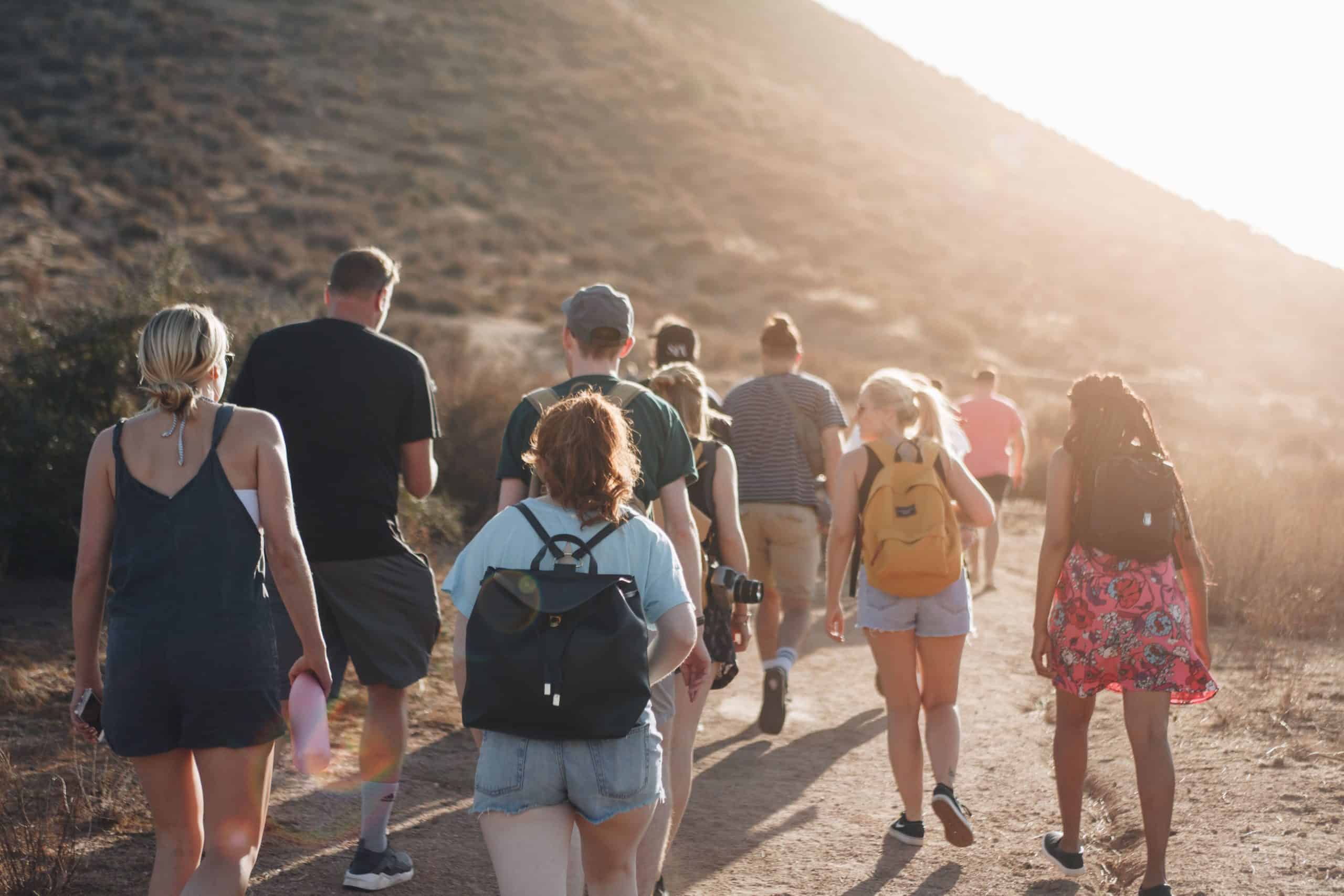So, wait. What exactly is a synod?
Maybe you’ve heard this term. Perhaps not. It technically means a gathering of bishops for the purpose of giving counsel to the Pope. Pope Francis, however, wants to expand our understanding of synodality. That’s why he announced in 2020 the “Synod on Syondality” which officially opened back in October. Before the bishops meet in 2023, the pope wants to hear feedback about the church not just from priests or bishops, but from all its people.
The hope of this process is to help the Church journey together as a group. Pope Francis has called on people to dream about where the Church can go and what it can be. And it is the responsibility of the parishes and bishops to listen to the people.
I cannot speak for how different dioceses have chosen to implement the synod. However, I’ve been on the ground at the Church of the Gesu in Cleveland over the past few months. We’ve held at least a dozen listening sessions with various groups: parish staff, teachers at our grade school, students, the RCIA group, and even open sessions where anybody is welcome to attend.
Every session starts the same, with prayer. The Diocese of Cleveland drafted an examen prayer that we use with our groups. The examen takes the group through their entire history with the Church, from their earliest moments to the present. What have been the moments of connection? Where have people felt distant? What have been moments of failure, on a personal and a larger level?
Our participants, split into tables, are then asked to share what they felt and experienced in prayer as well as what they heard in the voices of the others in the group. After we’ve heard the prayers of the group, the group can start to talk about how they feel God is calling us to journey together, which eventually translates into practical suggestions.
And we close with an invitation for people to invite others to future sessions or to talk to someone else (ideally someone on the margins) about the process, to learn their history with the Church and how they feel we can journey forward together.
Whatever our issues with the Church may be, these sessions are not a place to pick apart the institution. Rather, the goal is to listen to the Holy Spirit and respond to that prayer. And because of that, a group dynamic, not an individual dynamic forms. That’s very encouraging.
After all, the entire point of this process is to journey as a group. If this were all about the Church listening to different particular individuals, then we would be simply operating under the same system. The goal of the synod is to examine how we can move forward as a community.
Every session I have attended has made that theme important. We are all a part of the Church community, whether we’ve been at our parish for sixty or seventy years or whether we’re new or have been infrequent Mass attendees over the course of our lives. We are not a collection of individuals who try to follow Jesus, but we are the Body of Christ, trying to respond to the Holy Spirit. And so we journey together, trusting that God can work through each of us to build the Kingdom of God. Ideally, that’s why we participate in this synod.
A few things have stuck out to me in the process. One is how prayerful and collaborative people can be. Another is how universal the call to build up community has been. Third is the gratitude people have for their faith and how it has formed them.
Even though these sessions were not about picking apart the institutional church, I feared that people would not take the call to prayer seriously. I look at myself and notice how I often am unable to focus on guided prayer or can get caught up in what I feel I have to say in prayer that I cannot listen. And yet, almost every person I’ve listened to has been able to listen to the Holy Spirit in their examen.
More surprising is how I’ve seen people build off of the ideas others have set up in the more open rounds of sharing. One person’s words will spark those of another, and people go on building each other up and adding to ideas. Even when people have disagreed, they’ve done so in tactful ways. Perhaps this form of conversation comes from remembering that we are a church community and that there are many ways to proceed. After all, not everything that people suggest will come to fruition.
And that leads into my second takeaway. Every session I have been a part of, bar none, has mentioned that community is an important part of our faith and we need to find a way to preserve and enhance it. At some level, this is unsurprising, because we worship in the places we do because we feel a connection to it. However, even the students who do not have a great deal of choice about where they worship named that community as an important piece. They had many good and constructive questions. How can we build up what is good? How can we help people get to know each other better? Are there previous ideas we can revisit and adapt?
Finally, I am struck by how people have overwhelmingly expressed gratitude for their faith. Listening to diverse groups, I heard people share pain about their life in the Church. Some had negative experiences in other parishes. Others are saddened by how their children or relatives haven’t held onto their faith in a meaningful way (if at all). And yet, even with the struggles and the difficulties, people are grateful for what they have experienced and for the ways their faith has formed them into the people they are.
Of course, I draw from a limited pool; one hope for the synod is to reach out to people who are on the edges of their faith, and I have not had the opportunity to interact with many of these people. But my takeaways remind me of a consoling fact; there is good in our church. It is flawed and in need of growth, yes, but there’s also a a tremendous willingness in the people I spoke with to own that faith and pass it along to the next generation. And so journey forward, together—that will make all the difference.


